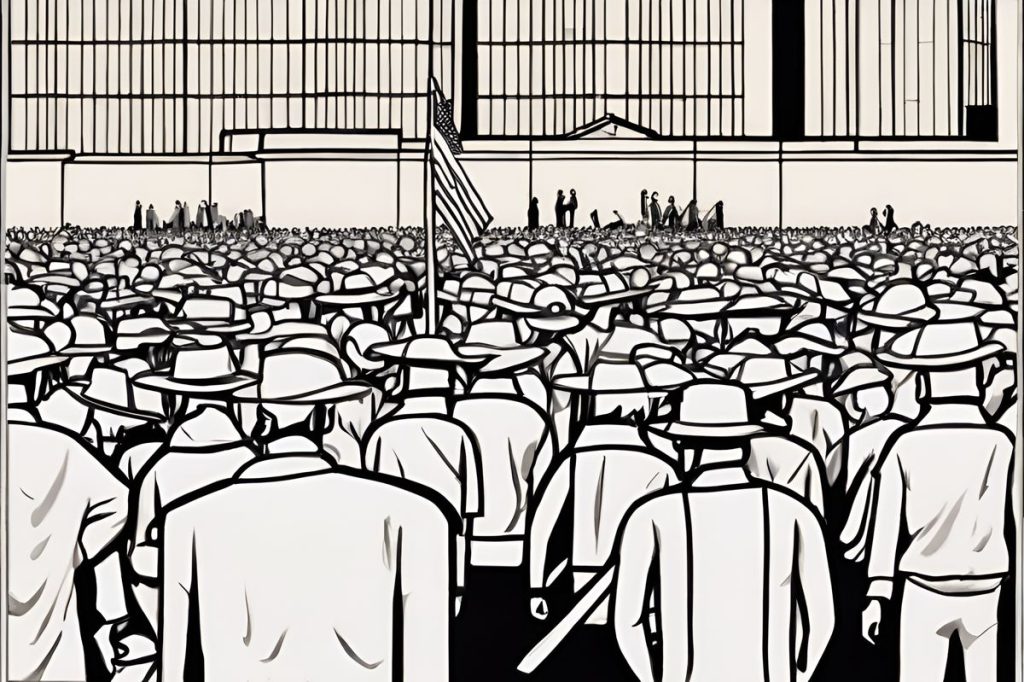In Northern Cyprus, Transport Minister Erhan Arikli is suing Mustafa Naimogullari over alleged slander during ongoing protests by local farmers against the government’s decision to import meat. The tensions have escalated, with farmers protesting the importation plans aimed at reducing consumer prices, prompting legal action and further complications in the delicate balancing act between supporting local producers and meeting consumer demands.
Why is Erhan Arikli suing Mustafa Naimogullari?
Erhan Arikli, the transport minister of Northern Cyprus, is suing Mustafa Naimogullari for allegedly making “mindless, vile claims” against him. This legal move follows heightened tensions and protests by local farmers against government decisions to import meat, aimed at reducing consumer prices, which local producers oppose.
Escalating Tensions Amidst Agriculture Policies
The atmosphere is charged with tension as Erhan Arikli, known for his role as the transport minister in Northern Cyprus, has made a bold move against Mustafa Naimogullari, the head of the region’s animal producers’ and breeders’ union. Arikli’s announcement came on the heels of a week marked by vociferous protests from local farmers. These protests were a response to a governmental decision to start importing meat, specifically from the Netherlands, with the aim of reducing retail prices for consumers.
The decision has been met with fierce opposition from local producers. In a show of defiance, they kicked off a series of protests that quickly escalated. The situation reached a new peak when protesters directed their anger at Arikli by vandalizing the ministry’s property.
Legal Repercussions and Public Statements
In the midst of this upheaval, Arikli has accused Naimogullari of slandering him. On social media, Arikli expressed his intention to initiate legal proceedings, asserting that Naimogullari had made “mindless, vile claims” against him. This allegation of slander is particularly interesting given that Naimogullari didn’t make any public statements directed at Arikli on the day in question. This has led to speculation about what exactly prompted Arikli’s threat of a lawsuit. One theory suggests that Arikli could be referring to earlier comments by Naimogullari, where he branded Arikli as a “thief” and called for his resignation.
Another angle being considered is the symbolic “funeral” that was held for the government, where a coffin, emblazoned with the names of various ministers, including Arikli, was set ablaze in front of the transport ministry building. This act of protest was a dramatic visual representation of the farmers’ dissatisfaction with the current administration.
Government Stance and Consumer Interests
The government, under the leadership of ‘Prime Minister’ Unal Ustel, has expressed its commitment to balancing consumer interests with support for local producers. Ustel has conveyed his administration’s willingness to engage in dialogue to clarify their policies and make any necessary adjustments. He assured that the government would not retreat from its current policies, highlighting a price cap set for local meat at 550TL per kilogram, contrasted with the 400TL price point for imported Dutch meat.
The administration’s approach also includes financial support for farmers, as evidenced by the significant amount of subsidies—over 1 billion TL—provided since the beginning of 2022. Huseyin Cavus, the agriculture minister, has been actively involved in these efforts, signaling the government’s intention to alleviate some of the financial burdens faced by local producers.
The Road Ahead
As the protest moves into its next phase, the deadlock persists. Farmers are adamant about not ending their demonstrations until the government’s importation plans are retracted, while the government insists on moving forward with its agenda. This situation has become a flashpoint, highlighting the complexities of agricultural policy and its impacts on small-scale producers amidst the challenges of global trade and market regulations.
The unfolding events in Northern Cyprus underscore the delicate balance between supporting local industries and managing consumer prices in an increasingly interconnected world. The lawsuit planned by Arikli against Naimogullari is set to add another layer of complexity to an already tense situation. With both sides steadfast in their positions, the resolution of this conflict remains to be seen.
Why is Erhan Arikli suing Mustafa Naimogullari?
Erhan Arikli, the transport minister of Northern Cyprus, is suing Mustafa Naimogullari for allegedly making “mindless, vile claims” against him. This legal move follows heightened tensions and protests by local farmers against government decisions to import meat, aimed at reducing consumer prices, which local producers oppose.
What is the current situation in Northern Cyprus regarding agricultural policies and protests?
The atmosphere in Northern Cyprus is tense due to protests by local farmers against the government’s decision to import meat to reduce consumer prices. The protests have escalated, with farmers expressing their opposition to the importation plans. This situation has led to legal action by Erhan Arikli against Mustafa Naimogullari for alleged slander, adding another layer of complexity to the ongoing conflict.
How is the government of Northern Cyprus responding to the protests and tensions?
The government of Northern Cyprus, led by ‘Prime Minister’ Unal Ustel, is committed to balancing consumer interests with support for local producers. The administration has set a price cap for local meat and provided significant financial support to farmers. Despite the protests and opposition, the government is standing firm on its policies while expressing willingness to engage in dialogue to address concerns and make necessary adjustments.
What challenges and complexities are highlighted by the situation in Northern Cyprus?
The protests and legal actions in Northern Cyprus underscore the challenges of balancing support for local industries with managing consumer prices in the face of global trade dynamics and market regulations. The conflict between local producers and the government reflects the complexities of agricultural policy and the delicate balancing act required to meet the needs of both producers and consumers in a rapidly changing world.

